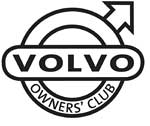

Photographs can be seen in our Volvo Gallery
Prototype Multi-Fuel vehicle and Collision Warning system by Volvo Car Corporation contribute to sustainable mobility
31 May 2006
Volvo Car Corporation previews prototype Multi-Fuel vehicle and new generation Collision Warning system at the Michelin Challenge Bibendum 2006, which takes place in Paris, June 8-12. These two groundbreaking works in progress reflect the company’s preventive development, supplemented by its cleaner diesel engines as well as engines for renewable fuels.
A new generation active safety system
Volvo Car Corporation focuses on developing preventive safety systems to help
the driver predict critical traffic situations. The first generation Collision
Warning with Brake Support was recently launched in the new Volvo S80. Volvo Car
Corporation is now working on a whole new generation of the system, which is
designed to be activated at a very early stage.
- If the driver does not hit the brakes in time, the system brakes automatically to slow the vehicle down, says Ingrid Skogsmo, Safety Director at Volvo Car Corporation. This helps prevent collisions from happening or reduces their effects.
Volvo Car Corporation has chosen to preview the new generation Collision Warning at the Michelin Challenge Bibendum 2006 in Paris, as a sample of the company’s advanced system development.
ENTERING THE COMPETITION
Prototype engine for five different fuels
Another development project that Volvo Car Corporation previews at
the Michelin Challenge Bibendum is the Volvo Multi-Fuel - a whole new prototype
car, optimised for running on five fuels; bioethanol E85, methane in the form of
either natural gas or biomethane, petrol and what is called hythane - a blend of
10% hydrogen and 90% methane.
- It has a powerful engine that accelerates quickly and allows high performance on all five fuels, says Hans Folkesson, former Senior Vice President Research and Development at Volvo Car Corporation, now driving Environmental Technologies in Ford’s European Operations.
The Multi-Fuel meets virtually all known emission standards in the world, including the proposed Euro 5. Running on pure renewable fuels like hydrogen, biomethane and bioethanol means negligible net contribution of carbon dioxide to the greenhouse effect. The turbo charged engine has an effect of 200 bhp and accelerates quickly for a smoother and more responsive drive.
Cleaner diesel engines
The Volvo S40 1.6D is the most fuel-efficient Volvo of all times. It
has a four-cylinder 1.6-litre diesel engine (109 bhp) and a fuel consumption of
4.9 litres per 100 kilometres. Equipped with a particulate filter, particulate
emissions are reduced to a minimum. Meanwhile, carbon dioxide emissions are
15-20% lower compared to petrol.
Engines for renewable fuels
The Volvo V50 FlexiFuel has a four-cylinder 1.8-litre engine (125 bhp).
It runs on bioethanol E85, which contains 85% ethanol and 15% petrol. Ethanol
reduces net fossil carbon dioxide tailpipe emissions by 80% compared to petrol.
The Volvo S60 Bi-Fuel has a five-cylinder 2.4-litre engine (140 bhp). It runs on biomethane and natural gas, with petrol as a reserve and ignition fuel. Carbon dioxide emissions from natural gas drive are approximately 25% lower than those from petrol. Running on biomethane, the engine gives negligible net contribution of fossil carbon dioxide to the greenhouse effect.
With focus on the environment
Volvo Car Corporation believes that the road to sustainable mobility
is not one but many. Local conditions vary and one renewable fuel can not yet
replace the fossil ones. At present, fifty per cent of the Volvo car models can
be equipped with an engine for renewable fuels.
- We are dedicated to continuously develop high-technological engines for different fuels with the environment’s best interests in mind - today and for the future, says Hans Folkesson.
Legal | Privacy | Contact Us | Search | Site Map
Volvo Owners' Club Limited® 1962-2025

